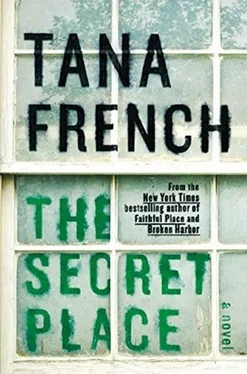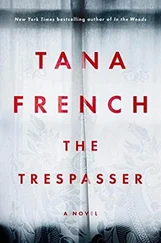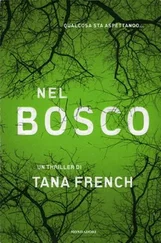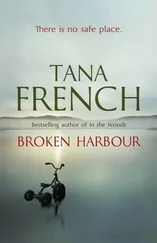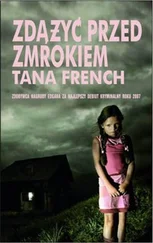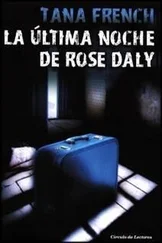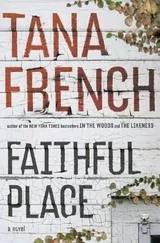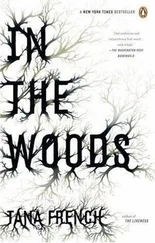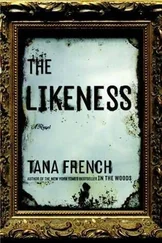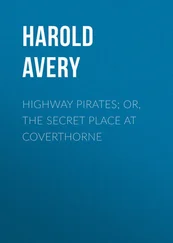Conway’s eye on me: Razor blades in their hair. Still beautiful now?
She was right. It startled me more than it should have, a shock like a splinter jamming under a nail. That hadn’t come in from outside, like Chris Harper. That had grown inside these walls.
Miss McKenna said, ‘Both the mother and the daughter were, understandably, very upset.’
‘So?’ Conway said. ‘Block the site.’
‘And the new one twenty-four hours later, and the next one, and the next? Girls need a safety valve, Detective Conway. Do you recall, a week or so after the incident’ – small snort of laughter from Conway: incident – ‘a group of students claimed to have seen Christopher Harper’s ghost?’
‘In the girls’ jacks,’ Conway said sideways, to me. ‘Fair enough; first place a young fella would go if he was invisible, am I right? A dozen young ones screaming their lungs up, hanging on to each other, shaking. I almost had to do the old slap in the face before they could tell me what was going on. They wanted me to go in with my gun and shoot it. How long’d it take to settle them, in the end? Hours?’
‘After that,’ Miss McKenna said – to me, again – ‘we could, of course, have forbidden any mention of Christopher Harper. And the “ghost” would have reappeared every few days, possibly for months. Instead, we arranged group counselling sessions for all the girls, with emphasis on grief management techniques. And we set up a photograph of Christopher Harper on a small table outside the assembly hall, where students could say a prayer or leave a flower or card. Where they could express their grief in an appropriate, controlled fashion.’
‘Most of them hadn’t even met him,’ Conway told me. ‘They didn’t have any grief to express. Just wanted an excuse to go mental. They needed a kick up the hole, not a pat on the head and poor-little-you.’
‘Possibly,’ said Miss McKenna. ‘But the “ghost” never made another appearance.’
She smiled. Pleased with herself. Everything back on track, nice and neat.
Not stupid. From what Conway had said, I’d been expecting some halfwit snob dyed certain-age-blonde, starved into a size zero and stitched into a frozen grin, running the school on big talk and hubby’s contacts. This woman was no halfwit.
‘So,’ she said, ‘we followed the same approach with the noticeboard. We diverted the impulse into a controllable, controlled safety valve. And, again, the results have been highly satisfactory.’
She hadn’t moved since she sat down. Straight-backed, hands folded. Massive.
‘“Controlled,”’ Conway said. She flipped a pen off the desk – Montblanc, black and gold – and started playing with it. ‘How?’
‘The board is monitored, obviously. We check it for any inappropriate material before the first class, again at breaktime, again at lunch and again after classes end for the day.’
‘Ever find any inappropriate material?’
‘Of course. Not often, but occasionally.’
‘Like what?’
‘Usually some variation on “I hate So-and-So” – So-and-So being either another student or a teacher. There is a rule against using names, or making another person identifiable, but of course rules do get broken. Generally in harmless ways – naming a boy the writer finds attractive, or declaring eternal friendship – but sometimes in crueller ones. And, in at least one case, in order to help, rather than to hurt. A few months ago, we found a card with a photograph of a bruise and the caption “I think So-and-So’s dad hits her.” Obviously we removed the card immediately, but we raised the issue with the girl involved. Discreetly, of course.’
‘Of course,’ said Conway. She tossed the pen spinning in the air, caught it easily. ‘Discreetly.’
I asked, ‘Why the actual physical board? Why not just set up an official website of your own, with a teacher to moderate it? Anything that could hurt someone’s feelings, it never gets posted. Safer.’
Miss McKenna looked me over, picking out details – good coat but a couple of years old, good haircut but a week or two past its best – and wondering what kind of specialist, exactly. Unfolded and refolded her hands. Not wary of me, not that far, but being careful.
‘We considered that option, yes. Several teachers were in favour of it, for exactly the reason you mention. I was against. In part because it would have excluded our boarders, who have no unsupervised internet access; but primarily because young girls slip between worlds very easily, Detective. They lose their grasp on reality. I don’t believe they should be encouraged to use the internet more than necessary, let alone to make it the focus of their most intense secrets. I believe they should be kept firmly rooted in the real world as much as possible.’
Conway’s eyebrow was right up: The real world, this?
Miss McKenna ignored her. That smile again. Satisfied. ‘And I was right. There have been no more websites. The students actually enjoy the complications of the real-world process: the need to wait for a moment when no one can see them pin up a card, to find an excuse to visit the third floor without being noticed. Girls like to reveal their secrets, and they like to be secretive. The board provides the perfect balance.’
I asked, ‘Do you ever try and trace who put up a card? Like, if there was one that said “I’m on drugs”, you’d want to work out who wrote it. How would you go about that? Is there a CCTV camera on the board, anything like that?’
‘CCTV?’ Drawn out like a foreign word. Amusement, real or put on. ‘This is a school, Detective. Not a prison. And the students here don’t tend to be heroin addicts.’
I said, ‘How many students have you got?’
‘Almost two hundred and fifty. First year through sixth, two classes in each year, roughly twenty girls in each class.’
‘The board’s been up around five months. Statistically, in that amount of time, a few of your two hundred and fifty have had something in their lives that you’d want to know about. Abuse, eating disorders, depression.’ The words came out of my mouth strange. I knew I was right, but in that room they made a flat splat like I’d spit on the carpet. ‘And like you just said, girls want to tell their secrets. You’re telling me you never find anything more serious than “French class sucks”?’
Miss McKenna looked down at her hands, hiding behind her eyelids. Thought.
‘When identifying a writer is necessary,’ she said, ‘we have found that it can be done. We had one card that showed a pencil drawing of a girl’s stomach. The drawing had been sliced in a number of places by a sharp blade. The caption said, “I wish I could cut the whole thing off of me.” Obviously, we needed to identify the student. Our art teacher offered suggestions based on the style of the drawing, other teachers offered suggestions based on the handwriting of the caption, and within the day we had a name.’
‘And was she cutting?’ Conway asked.
Eyes hooded over again. Meaning yes. ‘The situation has been resolved.’
No drawing on our card, no handwriting. The cutter had wanted to be found. Our girl didn’t, or didn’t want to make it easy.
Miss McKenna said – to both of us, now – ‘I think this makes it clear that the board is a positive force, not a negative one. Even the “I hate So-and-So” cards are useful: they identify the students whom we need to watch for signs of bullying, in one direction or the other. This is our window into the students’ private world, Detectives. If you know anything about young girls, then you’ll understand just how invaluable that is.’
‘Sounds deadly all round,’ said Conway. Tossed the pen again, whipped it out of the air. ‘Did the invaluable board get checked after school finished up yesterday?’
Читать дальше
